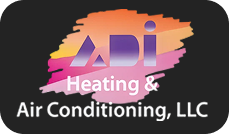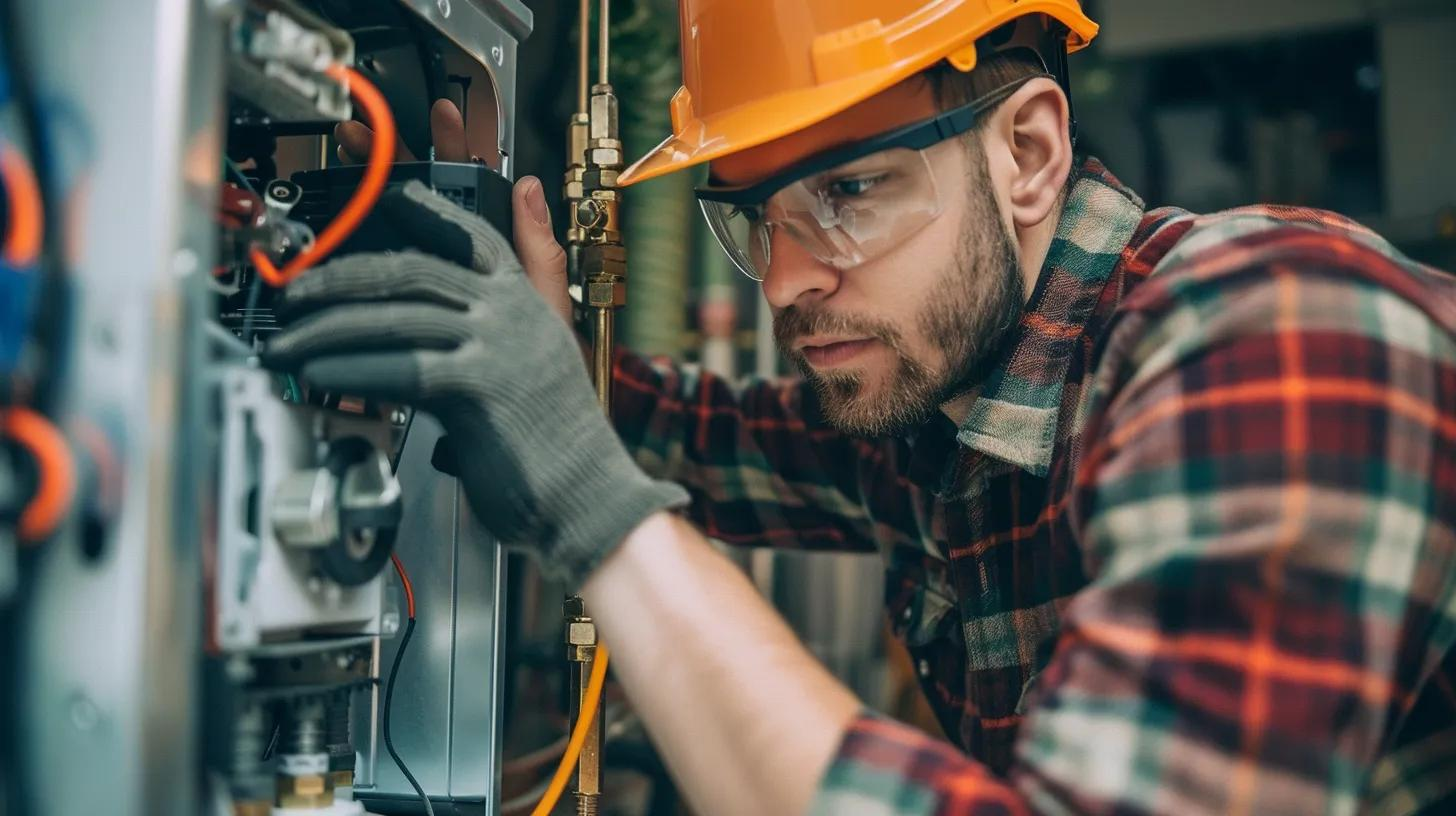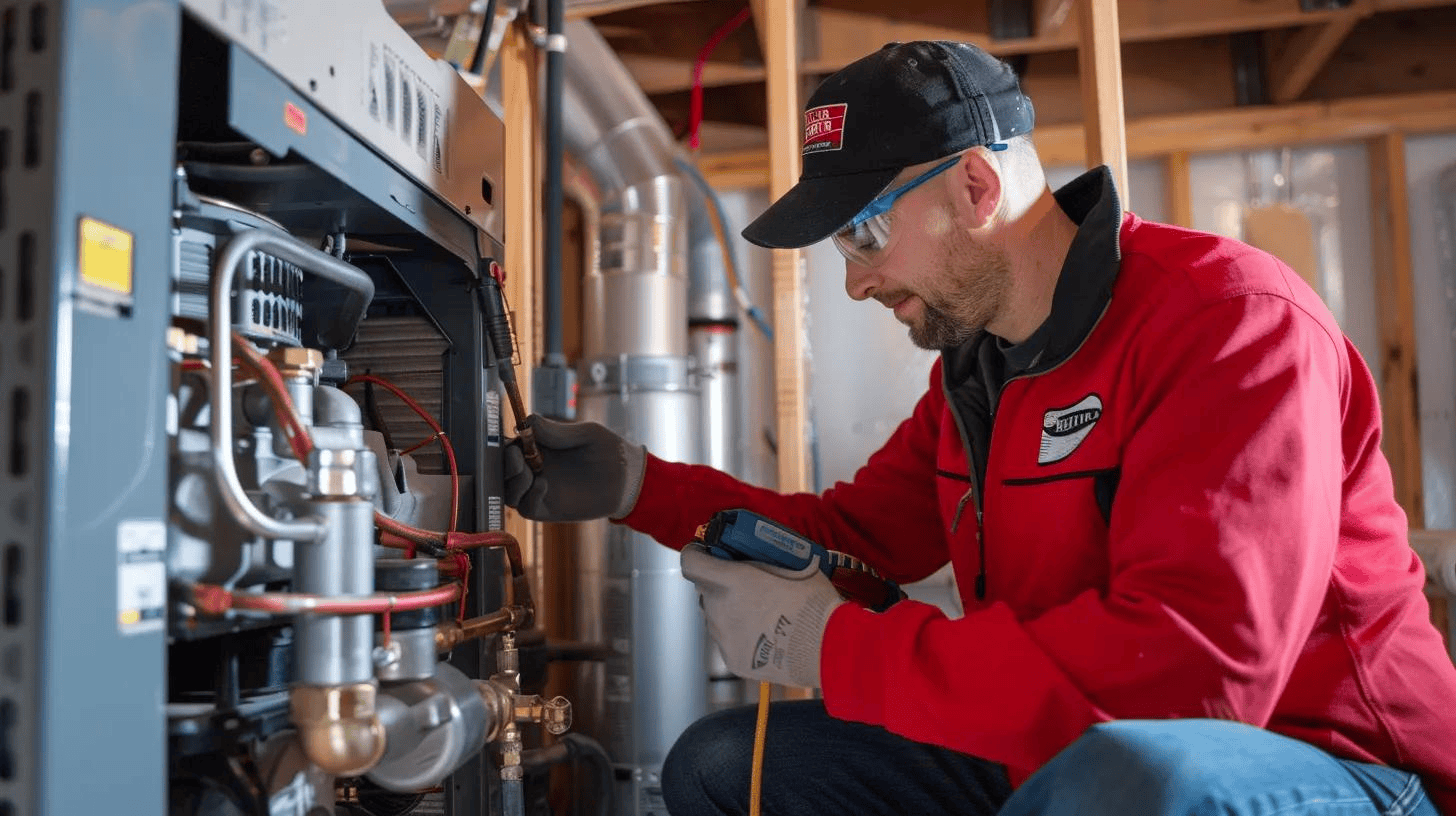IAQ Whole House Air Filtration in Glen Echo, MD
Whole-House Air Filtration for a Healthier Glen Echo Home
Indoor air can contain more pollutants than outdoor air, circulating allergens, dust, and odors throughout your Glen Echo home. A professional whole-house air filtration system, integrated with your HVAC, offers comprehensive air purification. Signs indicating a need for improved air quality include persistent allergies, excessive dust, or lingering odors. Understanding MERV and HEPA filtration technologies is crucial for selecting the ideal system. Professional assessment, installation, and regular maintenance ensure optimal performance and continuous clean, healthy air for your entire home.

Comprehensive Whole-House Air Filtration for Your Glen Echo Home
The air inside your Glen Echo home can be significantly more polluted than the air outside. Allergens, dust, pet dander, mold spores, and volatile organic compounds (VOCs) become trapped, circulating continuously through your HVAC system. While portable air purifiers offer a solution for a single room, a whole-house air filtration system provides a comprehensive, integrated solution, ensuring every breath you take indoors is cleaner, healthier, and fresher.
A whole-house air filtration system is not a standalone appliance; it is professionally installed directly into your home's central heating and air conditioning system. As your HVAC system runs, it pulls air from every room through the return ducts, passes it through an advanced filter, and then distributes the newly cleaned air back throughout your entire home. This process works silently and efficiently to create a healthier living environment for you and your family.
Signs Your Home's Air Quality Needs Improvement
You may not see the microscopic contaminants affecting your home, but their effects are often noticeable. If you experience any of the following in your Glen Echo residence, it’s a strong indication that a whole-house air filtration system could provide significant relief.
- Persistent Allergies or Asthma: Do you or your family members suffer from year-round allergies, asthma flare-ups, or other respiratory issues that seem to worsen indoors?
- Excessive Dust: Do you find yourself constantly dusting surfaces, only for a new layer to appear just a few days later?
- Lingering Odors: Do cooking smells, pet odors, or a general musty scent linger in your home long after the source is gone?
- Frequent Illness: Does it seem like colds, sinus infections, and other respiratory bugs spread easily through your household?
- Visible Mold or Mildew: Have you noticed signs of mold or mildew, particularly in humid areas like basements or bathrooms?
These common issues are often directly linked to poor indoor air quality. A dedicated filtration system addresses the root cause by capturing the particles responsible for these problems.
Understanding Filtration Technologies: MERV and HEPA
Choosing the right filtration system depends on understanding the technology behind it. The two most important terms to know are MERV and HEPA.
MERV (Minimum Efficiency Reporting Value)The MERV rating measures how effectively an air filter removes airborne particles. The scale typically ranges from 1 to 20; the higher the number, the smaller the particles the filter can capture.
- MERV 1-4: These basic filters capture very large particles like carpet fibers and dust bunnies but do little for smaller, more harmful contaminants.
- MERV 8-12: This is the most common range for residential use. These filters are effective at capturing pollen, dust mites, pet dander, and some mold spores, offering a significant improvement over standard filters.
- MERV 13-16: Considered high-efficiency, these filters capture smaller particles, including bacteria, smoke, and some virus-carrying droplets. ASHRAE (American Society of Heating, Refrigerating and Air-Conditioning Engineers) often recommends a minimum of MERV 13 for superior air quality.
Important HVAC Compatibility Note: While a higher MERV rating provides better filtration, it also creates more resistance to airflow. Installing a high-MERV filter in an HVAC system not designed for it can strain the fan motor, reduce efficiency, and even lead to equipment damage. A professional assessment is crucial to determine the highest MERV rating your specific system can handle without compromising its performance.
HEPA (High-Efficiency Particulate Air) FiltrationHEPA filters represent the gold standard in air purification. To qualify as a true HEPA filter, it must be certified to remove at least 99.97% of airborne particles as small as 0.3 microns. This includes a vast majority of viruses, bacteria, fine dust, and allergens.
Because HEPA filters are extremely dense, they cannot simply be swapped with a standard HVAC filter. Their high air resistance would overwhelm most residential systems. Instead, whole-house HEPA filtration is achieved through a professionally installed bypass system. This setup diverts a portion of the air through the HEPA filter and then mixes it back into the general airflow, purifying your home’s air over time without damaging your HVAC equipment.
The Professional Installation and Maintenance Process
Achieving optimal indoor air quality is not a DIY project. Our process is designed to provide a customized and effective solution for your Glen Echo home.
First, our technicians conduct a thorough assessment of your home's current indoor air quality and existing HVAC system. We analyze your specific concerns, whether they are related to allergies, pets, or general dust, and evaluate your system's capacity.
Based on this assessment, we recommend the ideal filtration solution. This could be an upgraded high-MERV media filter or a more advanced bypass HEPA system, depending on your goals and your system’s specifications. We ensure the recommended system is perfectly sized and compatible.
The installation is performed by certified technicians who seamlessly integrate the new filtration unit into your home’s ductwork. We ensure all connections are sealed and secure to prevent air leaks and maximize performance. Following installation, we test the system to verify it is operating correctly and educate you on its function and required maintenance, primarily filter replacement schedules.
Regular maintenance is key to the system's longevity and effectiveness. Filter replacement frequency can vary from every three months to once a year, depending on the type of filter and factors within your home, such as the presence of pets or smokers. We provide clear guidance on maintaining your system to ensure you enjoy clean air for years to come.






